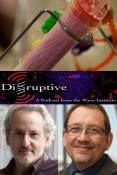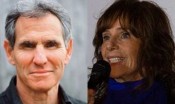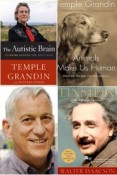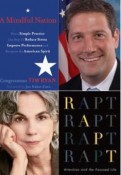DISRUPTIVE DISRUPTIVE: CONFRONTING SEPSIS – Don Ingber and Mike Super
Written on October 2nd, 2015
Wyss Institute for Biologically Inspired Engineering
DISRUPTIVE: CONFRONTING SEPSIS
Terrence McNally interviews Don Ingber and Mike Super
[00:04] Hello, I’m Terrence McNally and you’re listening to DISRUPTIVE the podcast from Harvard’s Wyss Institute for Biologically Inspired Engineering.
The mission of the Wyss is to: Transform healthcare, industry, and the environment by emulating the way nature builds.
Our bodies — and all living systems — accomplish tasks far more sophisticated and dynamic than any entity yet designed by humans. By emulating nature’s principles for self-organizing and self-regulating, Wyss researchers develop innovative engineering solutions for healthcare, energy, architecture, robotics, and manufacturing.
They focus on technology development and its translation into products and therapies that will have an impact on the world in which we live. So the Wyss is not interested in making incremental improvements to existing materials and devices, but in shifting paradigms. In this episode of DISRUPTIVE, we will focus on: CONFRONTING SEPSIS
Sepsis is a bloodstream infection in which the body’s organs become inflamed and susceptible to failure. The leading cause of hospital deaths, sepsis kills at least eight million people worldwide each year.
It can be caused by 6 species of fungi and 1400 species of bacteria. Diagnosis takes two to five days, and every hour you wait can increase the risk of death by 5-9%. The treatment challenge grows more complex as the prevalence of drug-resistant bacteria increases while the development of new antibiotics lags.
“Even with the best current treatments, sepsis patients are dying in intensive care units at least 30% of the time,” says one of today’s guests, Wyss Senior Staff Scientist Mike Super.
A new device developed by a team at Wyss and inspired by the human spleen may radically transform the way we treat sepsis. Their blood-cleansing approach can be administered quickly, even without identifying the infectious agent. In animal studies, treatment with this device reduced the number of targeted pathogens and toxins circulating in the bloodstream by more than 99%.
Although we focus here on treatment of sepsis, the same technology could in the future be used for other applications, including removing microbial contaminants from circulating water, food or pharmaceutical products.
Now let’s explore the development process with Mike Super and Wyss Founding Director, Don Ingber.
[02:25] Ingber leads the Biomimetic Microsystems platform at Wyss in which micro-fabrication techniques from the computer industry are used to build functional circuits with living cells as components. He’s authored more than 400 publications and over 100 patents.
[02:40]
The seeds of Wyss’s therapeutic sepsis device go back over twenty years. I ask Don to talk about some of the earlier explorations and findings that laid the foundations for the current work.
Ingber:
[02:51] I was interested in mechanics and biology, this idea that mechanical forces are as important as chemicals and genes, and that the shape of the cell is important. To get at testing that, I come up with the idea of using little magnetic particles that I would coat with molecules that would bind to specific receptors on cells.
Continue reading “DISRUPTIVE DISRUPTIVE: CONFRONTING SEPSIS — Don Ingber and Mike Super”
Free Forum Q&A – (1) ROKO BELIC director, HAPPY documentary (Originally aired January 2012) (2) RAFE ESQUITH American Teacher of the Year 30+ years, 5th grade, Hobart Elementary, LA author, REAL TALK for REAL TEACHERS (Originally aired September 2007)
Written on May 29th, 2015
Do you want to feel better? Listen to this week’s show. In the first half hour, I talk with Academy-Award-nominated filmmakerROKO BELIC about his documentary,HAPPY, and in the second half with award-winning LA school teacher and author,RAFE ESQUITH about his book,TEACH LIKE YOUR HAIR’S ON FIRE.
Are you happy? How often are you happy? What makes you happy? Does money make you happy? Kids and family? Your work? Do you live in an environment that values and promotes happiness and well-being? Do you expect you’re going to get happier? How?
When the basic approach to the pursuit of happiness that’s been taken by many of us and by society in general isn’t delivering, this is a good time to ask some basic questions. It’s also a good time to do so because we know more than we ever have about what science can tell us about happiness. And we have access to more diverse models and worldviews than ever before.What’s getting lost in your daily shuffle? What toll is stress taking on your body? How could you lead a fuller, happier life?
Free Forum Q&A – MINDFULNESS JON KABAT-ZINN WHEREVER YOU GO, THERE YOU ARE; COMING TO OUR SENSES: HEALING OURSELVES AND THE WORLD THROUGH MINDFULNESS TRUDY GOODMAN founder, InsightLA in Santa Monica
Written on May 22nd, 2015
Originally aired September 2010
You startle awake to a rude alarm clock. Nothing you’d rather do than sleep a bit more. Coffee gets you going enough to make it out the door. On your morning commute you zone out, oblivious to radio reports of weather disasters or war casualties. At work, juggling your cell phone, landline, and email, you speak to countless faceless people without leaving your desk. You grab lunch over a pile of paperwork. Driving home, you look up to notice what must have been a beautiful sunset. At day’s end, you’re back where you started.
What’s getting lost in your daily shuffle? What toll is stress taking on your body? How could you lead a fuller, happier life?
JON KABAT-ZINN says the answer may be “living life moment by moment as if it really mattered.” He believes that by practicing mindfulness, we can literally and metaphorically come to our senses – as individuals and as a society. And there’s growing scientific evidence to back him up. TRUDY GOODMAN has done a lot to make that practice accessible here in LA, with the InsightLA center in Santa Monica.
Free Forum Q&A – TEMPLE GRANDIN, one of the most accomplished adults with autism, designer of livestock handling facilities, author, ANIMALS MAKE US HUMAN & (2) WALTER ISAACSON, head of the Aspen Institute, author, EINSTEIN: HIS LIFE AND UNIVERSE
Written on April 9th, 2015
TEMPLE GRANDIN – Originally aired January 2010
WALTER ISAACSON – Originally aired May 2007
Two extraordinary minds: Interviews about a couple of individuals who, though slow learners as children, grew up to do amazing things.
In the first half, I’ll talk with Temple Grandin, PhD, probably the most accomplished adult with autism in the world. Now a Professor of Animal Science at Colorado State University and a designer of livestock handling facilities, Grandin, who didn’t speak until she was three and a half years old, has become a prominent author, speaker and advocate on the issues of Autism and Asperger’s Syndrome. The 2010 HBO film based on her life won seven Emmys, including Outstanding Movie Made for Television, Outstanding Directing – Mick Jackson, and Outstanding Actress – Clare Danes.
In the second half, my guest will be WALTER ISAACSON, former managing editor of TIME magazine and Chairman of CNN, current head of the Aspen Institute, and the author of several bestselling books, including his biography of Steve Jobs. We’ll talk about his biography, EINSTEIN: His Life and Universe.
Einstein discovered, merely by thinking about it, that the universe was not as it seemed. His contributions changed the way we conceive of reality. A new biography makes the point that his scientific imagination sprang from his rebellious questioning of authority – a testament to the connection between creativity and freedom. In addition to his scientific genius, he was also noted for his social conscience Besides campaigning for a ban on nuclear weaponry, he denounced McCarthyism and pleaded for an end to bigotry and racism.
http://www.aspeninstitute.org/about/about-walter-isaacson
Free Forum Q&A – TIM RYAN Congressman, author, A MINDFUL NATION: How a Simple Practice Can Help Us Reduce Stress, Improve Performance, Recapture American Spirit & WINIFRED GALLAGHER RAPT: Attention and the Focused Life
Written on April 2nd, 2015
TIM RYAN (originally aired August 2012)
WINIFRED GALLAGHER (originally aired May 2009)
“My experience is what I agree to attend to.” — William James
This week we focus on mindful attention – hailed by ancient spiritual traditions and modern neuroscience alike as one of the keys to the quality of our lives.
In the first half, I’ll be joined by Ohio Congressman TIM RYAN, who offers a radical solution to the stresses and problems that face Americans today — radical in its original meaning of having to do with roots of things. He has written a book, A MINDFUL NATION: How a Simple Practice Can Help Us Reduce Stress, Improve Performance, and Recapture the American Spirit. Ryan has a daily practice of mindful meditation and now he’s advocating that the spread of similar practices could help heal us, not just as individuals but as a nation. And his book is filled with examples of how mindfulness is already being successfully applied in education, healthcare, even the military.
Then I’ll speak with bestselling author, WINIFRED GALLAGHER about her book, RAPT: Attention and the Focused Life. In it, she argues that “”The skillful management of attention is the… key to improving virtually every aspect of your experience, from mood to productivity to relationships.” Gallagher came to appreciate this while fighting a fairly advanced form of cancer. Determined not to let her illness “monopolize” her attention, she made a conscious choice to look “toward whatever seemed meaningful, productive, or energizing and away from the destructive, or dispiriting.” Her experience of the world was transformed, and she set out to learn more about the science of attention as well as what we can do to cultivate it.
Here’s one big tip based on neuroscience: GALLAGHER recommends starting your workday concentrating on your most important task for 90 minutes. At that point, your brain may need a break But don’t let yourself get distracted by anything else during that first hour and a half, because it can take the brain 20 minutes to reboot after an interruption.





